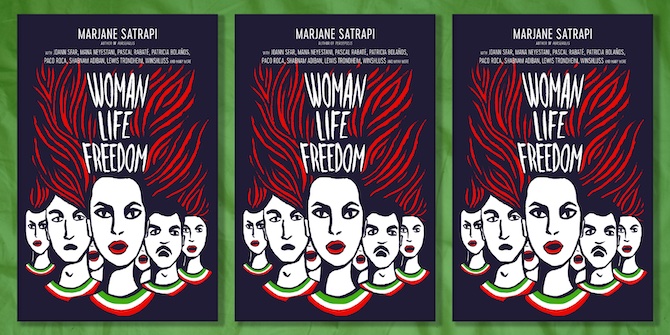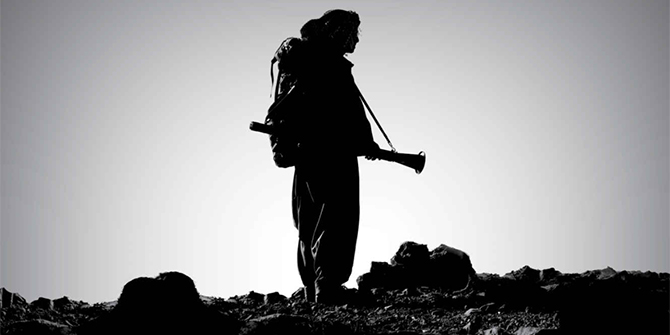 Before award-winning journalist Anthony Shadid died in February while reporting on the crisis in Syria, he wrote a memoir about returning to the town in Lebanon from which his relatives immigrated to the US at the turn of the 20th century and rebuilding the house which they left behind. Writer and blogger Marina Chamma, also an LSE Alum, reviews Shadid’s House of Stone: A Memoir of Home, Family and a Lost Middle East (Houghton Mufflin Harcourt, 2012).
Before award-winning journalist Anthony Shadid died in February while reporting on the crisis in Syria, he wrote a memoir about returning to the town in Lebanon from which his relatives immigrated to the US at the turn of the 20th century and rebuilding the house which they left behind. Writer and blogger Marina Chamma, also an LSE Alum, reviews Shadid’s House of Stone: A Memoir of Home, Family and a Lost Middle East (Houghton Mufflin Harcourt, 2012).
By Marina Chamma
What I felt was bayt, and it led me to make a promise to myself, a commitment that I still cannot believe I honored after all these years. You see, I have not always been a man who kept his promises, and I have never been the type to stay home (Excerpt from House of Stone)
When Anthony Shadid revisited his ancestral village of Jedeidat Marjayoun in southern Lebanon in August 2007, he had found bayt, Arabic for house. Yet it meant more than the four walls and red-tiled roof that he meticulously set himself to restore in a year: the bayt he found was the home he had lost with the end of his tumultuous first marriage. At the same time, the bayt he found was also the community and sense of belonging that he had never felt before, no matter where his travels took him. And this, he also found in Marjayoun.
In retrospect, it would be easy to say that Shadid must have felt an unexplainable urgency to rebuild his ancestral home, as it was just three years later that he succumbed to an asthma attack while covering the early stages of the Syrian uprising in 2011. Yet at the time, when the US-born New York Times correspondent and two-time Pulitzer Prize winner revisited Marjayoun, the urgency made perfect sense.
In “House of Stone,” Shadid embarks on restoring his maternal grandmother’s family home, a process that turns into a way of restoring his very own spirit, damaged by years of war-reporting. With constant flashbacks throughout the text, reminiscent of Amin Maalouf’s Origins, Shadid traces the history of both sides of his family and how a region in constant turmoil led them to immigrate to Oklahoma, in the early 20th century. The Samaras and Shadids embodied what the majority of Lebanese immigrants faced at the time, when immigration didn’t immediately translate into wealth and prosperity. Indeed, one of the first achievements was to arrive safe and sound to the New World. Economic hardship and the need to assimilate to local culture put further strains on the move. “Fortunes were accumulated, not found,” Shadid notes, after which families slowly found the better life that led them to leave their homeland in the first place.
The house’s restoration turns out to be an adventure in and of itself. Those Shadid employs to get the job done, from the color blind painter Toama to the hot-tempered foreman Abu Jean, seem to have come out of a classic Samuel Beckett script, unintentionally managing to bring Shadid to the brink. This, even though it was apparently common knowledge in the village that the Shadids were eccentric themselves. “People in Jdeidat don’t think you’re crazy, Anthony. They think you should be in an insane asylum.” And this, partly for embarking on what most of the village thought a futile rebuilding exercise, not understanding the extent this almost obsessive labor of love meant to this “crazy” American.
With endless wit and humor, whether picking the perfect tiles for the foyer or delicately harvesting the olives from his great-grandfather’s olive trees, Shadid weaves into the narrative the fast-changing history of the Levant through the eyes of his dying village. It isn’t only because of his ancestry, so much as his close relationship with the region through his career – from talking to top leaders to the average citizen – that enables Shadid to truly understand Lebanon in its continual struggle to find its way and chart its future in an always tumultuous region. “Nothing ever seemed to be resolved here. Lebanon’s dramas, I thought, were simply too big for its small stage,” he notes. But this frustration with the course of Lebanon’s history never stops him from cherishing the country in his own special way, because for him, Lebanon was more about his town and his ancestors and the people he met along the way, which made his experience so worthwhile. “You have your Lebanon and its dilemma. I have my Lebanon and its beauty,” Lebanese philosopher Khalil Gibran once noted, “you have your Lebanon and I have my Lebanon.” Still, Shadid manages to exude some hope for Lebanon and the region’s future, if only its people exercise what resolve and faith has kept the region together all these years.
With Shadid’s loss, Lebanon and the Middle East losses a sympathetic, understanding, yet professional voice, considered more objective than many others, in highlighting the region’s developments and challenges. In the face of the unfolding revolutionary changes, the absence of Anthony Shadid’s voice will also mean that someone else will be needed to fill this crucial void, as the world tries to better understand the repercussions of the current developments and the best way to respond to what lies ahead.
Marina Chamma holds a BA in Political Science from the American University of Beirut and an MSc in International Political Economy from the London School of Economics. She is a writer and blogger at eyeontheeast.org. You can also follow her on twitter @eyeontheeast.







10 Comments